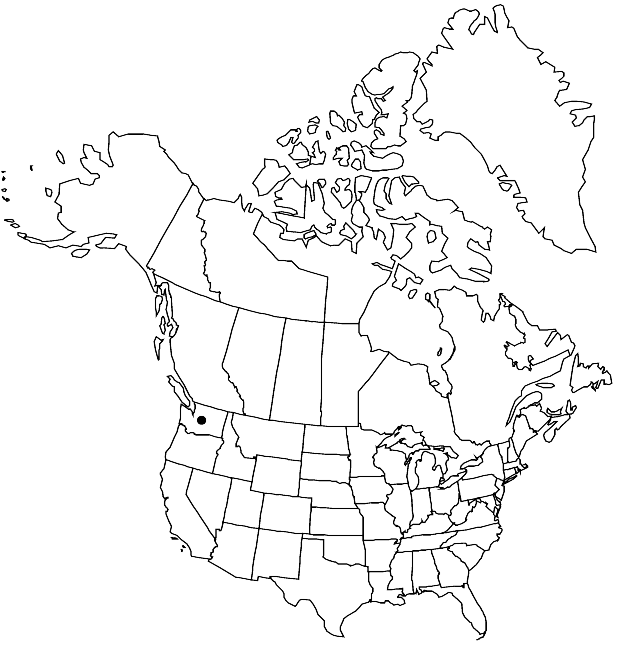Arabis olympica
Contr. U.S. Natl. Herb. 16: 208. 1913.
Perennials; (caudex branched, covered with persistent petiolar remains); moderately pubescent, trichomes simple or short-stalked, forked, (to 0.6 mm). Stems simple or few from base (caudex), erect, unbranched, 0.7–1.1 dm, (pubescent throughout, trichomes short-stalked, forked). Basal leaves: petiole 0.3–0.6 cm, (sparsely ciliate); blades oblanceolate to obovate, 0.4–1cm × 2–7 mm, margins entire or repand, (ciliate), apex obtuse, surfaces sparsely pubescent, trichomes simple and forked. Cauline leaves 4–6; blade oblong, 0.6–0.8 cm × 2–3 mm, base not auriculate, margins entire, (ciliate), apex obtuse. Racemes simple, (dense). Fruiting pedicels erect, (subappressed to rachis), 5–6.5 mm, (glabrous). Flowers: sepals (greenish), ovate, 1.5 × 0.5 mm, lateral pair not saccate basally, (glabrous); petals white, oblanceolate, 3.5–4 × 1 mm, apex rounded. Fruits erect, (appressed to rachis), slightly torulose, 2–2.3 cm × 1 mm; valves each with distinct midvein extending full length; ovules 28–34 per ovary; style 0.2–0.3 mm, (stout). Seeds winged distally, oblong, ca. 1 × 0.5 mm; wing ca. 0.1 mm wide.
Phenology: Flowering Aug.
Habitat: Talus slopes near glacier
Elevation: ca. 1400 m
Discussion
Arabis olympica, which is known from two collections, J. B. Flett s.n. (holotype, US; isotype, WS) and N. Buckingham 1577 (WS) that were made from Jefferson and Clallam counties, respectively, was reduced by R. C. Rollins (1936, 1941, 1993) to a variety of A. furcata. An examination of the type collections of both species reveals that they are distinct. Although the fruits and seeds of A. olympica are not fully mature, they are clearly different in width and orientation from those of A. furcata at the same developmental stage. The striking differences in fruit width and orientation, stem indument, and seed and flower size support their maintenance as distinct species. Although both species grow in Washington, the range of A. olympica seems to be restricted to Clallam and Jefferson counties and is disjunct from Chelan, Kittitas, and Yakima counties, where A. furcata grows.
Selected References
None.
